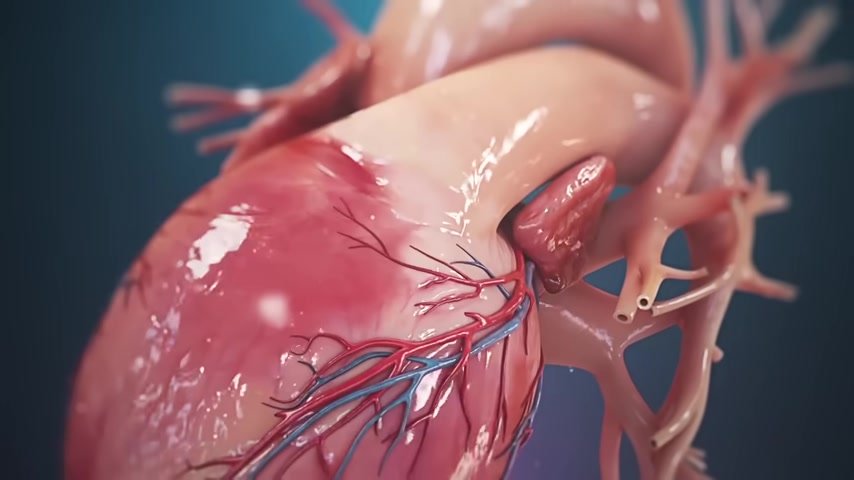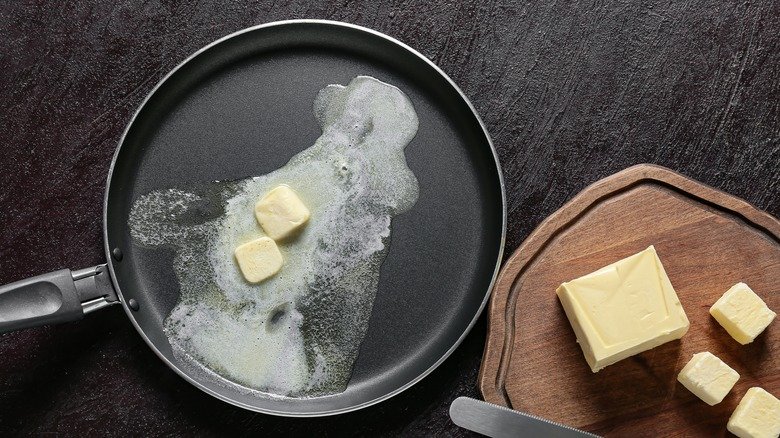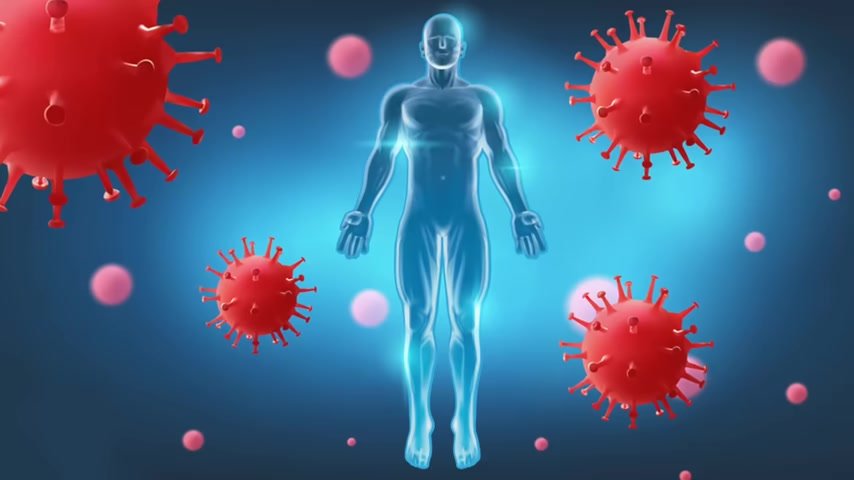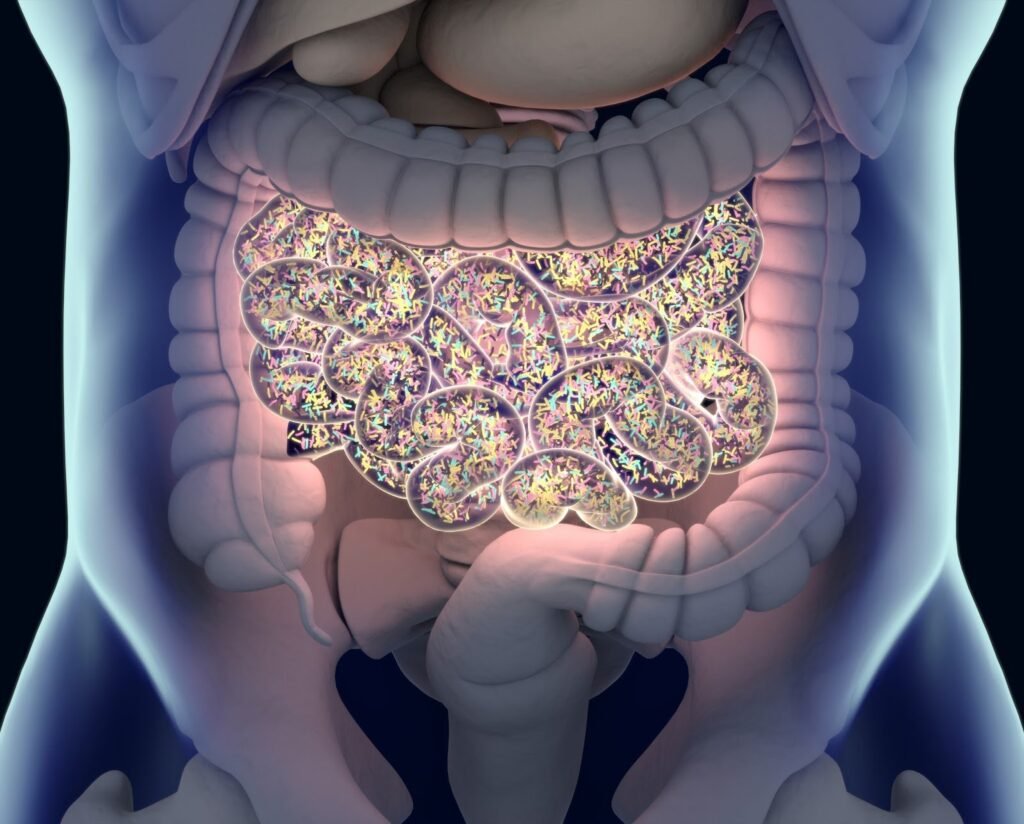Table of Contents
Think eggs and butter are bad for your cholesterol? Think again! This eye-opening guide busts common myths and explores the surprising science behind how these foods can actually improve your cholesterol profile and support heart health.
Are Eggs Bad for Cholesterol?
It’s a common belief that eggs are bad for your cholesterol. But what is Dr. Berg talking about now? Eggs and butter actually helping your cholesterol profile? How can that be?
Now, of course, if you have familial hypercholesterolemia, which is a genetic problem, this does not apply to that sector of the population. Also, if you are what’s called a hyper-responder, this information doesn’t apply. But for everyone else, I think it does apply, and just hear me out.
- Dr. Berg challenges the common belief that eggs and butter negatively impact cholesterol.
- This information may not apply to individuals with familial hypercholesterolemia or those who are hyper-responders.
Benefits of Eggs for Cholesterol

So let’s first talk about the egg yolk. The egg yolk has one of the highest sources of cholesterol-mobilizing nutrients. Number one: choline. Okay? And number two: lecithin.
Both of these compounds help you mobilize cholesterol out of the body. And the thing you need to know about eggs, for example, is that one egg gives you roughly about 186 milligrams of cholesterol.
But you have to also realize that your body makes cholesterol. It makes a lot! It makes like 3,000 milligrams of cholesterol every single day. So if we look at 3,000 milligrams and 186 milligrams, there’s a big difference between those two.
And in that egg yolk, Mother Nature has provided the mobilizers of cholesterol, and I’m going to put a lot of data down below in studies. But dietary cholesterol, which means the amount of cholesterol you’re eating, is not associated with increasing your cholesterol. And that’s kind of counterintuitive, but that’s just a fact.
- Egg yolks are rich in choline and lecithin, nutrients that help mobilize cholesterol out of the body.
- The body naturally produces a significant amount of cholesterol (around 3,000 milligrams daily).
- Dietary cholesterol intake is not directly linked to increased cholesterol levels.

Also, There is no study that shows that consuming eggs negatively affects your cardiovascular system. Yet in one study, which is a pretty interesting study, it was talking about the two phytonutrients in egg yolks: lutein and zeaxanthin, which happen to improve the cholesterol profile in the carbohydrate-restrictive group.
So they looked at people on a low-carb diet and how their cholesterol was altered when eating eggs. They showed a lower oxidative cholesterol reading. They also showed higher levels of the type of LDL that doesn’t create a problem in your arteries.
And this is basically differentiating the two types of LDL and the particle size. Okay? So you have the large buoyant LDL, and you also have the small dense LDL. In the group that restricted their carbohydrates, there is a much better LDL profile that supports healthy arteries.
- Studies have not shown a negative correlation between egg consumption and cardiovascular health.
- Lutein and zeaxanthin, phytonutrients found in egg yolks, have been linked to improved cholesterol profiles in individuals on low-carb diets.
- Consuming eggs while on a low-carb diet may lead to a more favorable LDL profile, which is beneficial for artery health.
And the other thing that I found interesting about the study, they talked about lutein and zeaxanthin, those two phytonutrients are better absorbed in eggs than they are in plants, which made me wonder about, what about all the phytonutrients in beef?
Would that be better absorbed? Well, apparently there’s not any studies done on that, and I’ll have to possibly do that study later on sometime. But the point is that animals, you know, eat plants and they get these phytonutrients.
And if we eat the animals, we indirectly get the benefits of some of these phytonutrients and the added benefit of just better absorption as well.
- Lutein and zeaxanthin are absorbed more efficiently from eggs than from plant sources.
- This raises the question of whether other phytonutrients, like those found in beef, are also better absorbed from animal sources.

The other interesting thing about egg yolks is that they’re a good source of vitamin K2, which protects the heart. It keeps the calcium for building up in the arteries, okay?
It drives the calcium into the bone. So as far as a food that supports your heart and your cholesterol, eggs are right at the top of the list.
- Egg yolks are a good source of Vitamin K2.
- Vitamin K2 supports heart health by preventing calcium buildup in arteries and directing it towards bones.
Benefits of Butter for Cholesterol

Now let’s talk about butter, okay? Now I’m talking about butter from cows that are grass-fed, grass-finished, not the typical grain-fed cow milk, but the grass-fed, which is a whole different thing.
And if you can actually find butter that’s cultured, that would be even better because now we’re getting a product with an added benefit of good bacteria.
- The benefits of butter are maximized when sourced from grass-fed, grass-finished cows.
- Cultured butter offers the additional benefit of probiotics (good bacteria).
First of all, butter and these microbes greatly have an influence over your cholesterol. Your own microbes make bile salts, which help to mobilize cholesterol.
Bile salts are involved in the primary regulation of cholesterol from the liver, and your microbiome makes this secondary type of bile. But anytime you consume probiotics or foods with microbes, like the cultured butter, chances are you’re going to help your cholesterol profiles.
But I just could not find any studies on cultured butter and cholesterol, but I do know the importance of consuming foods that are fermented or enriched with microbes.
- Butter, particularly cultured butter, can positively influence cholesterol levels due to its probiotic content.
- Probiotics and fermented foods support the production of bile salts, which play a role in cholesterol regulation.
Butter also is a good source of vitamin K2, which is great for the heart if it’s grass-fed. Vitamin K2 was called “The X Factor” in Dr. Price’s evaluation on traditional foods and fermented foods. Butter is also great for anyone going through menopause because it contains cholesterol that can really supply the raw material for making sex hormones.

And I’m not just talking about estrogen and progesterone, I’m also talking about other hormones like DHEA as well as cortisol, a key hormone that helps you with stress.
If someone going through menopause is trying to go on a low-fat diet, they’re going to have a hard time with these hormones.
- Grass-fed butter is a good source of Vitamin K2, which is beneficial for heart health.
- Vitamin K2 is considered an important factor in traditional and fermented foods.
- Butter’s cholesterol content can be beneficial for women experiencing menopause by providing the building blocks for sex hormone production.
Benefits of Cholesterol
And so just to remind you for the hundredth time, cholesterol is needed to make these hormones. Cholesterol is needed to make vitamin D. Cholesterol is needed to support all the cell membranes. Cholesterol is needed for your brain.

And cholesterol helps your immune system. Cholesterol is needed to make bile salts, which is very, very important. And so this is why your liver makes so much cholesterol; it’s needed!
- Cholesterol is essential for various bodily functions, including hormone production, vitamin D synthesis, cell membrane support, brain health, immune function, and bile salt production.

I’m going to list down below a study that was done. It was a randomized control study that showed that butter actually increased your LDL. And another study that shows there is a neutral effect or association between butter, cardiovascular disease, and butter and diabetes.
I’ll also include a link down below on the relationship between beta-carotene and lowering your cholesterol. And if you’re consuming butter from grass-fed cows, you’re getting a lot of beta-carotene, and you would see the color of butter being more yellow than white if it was loaded with beta-carotene.
- Research on the effects of butter on cholesterol and health markers like LDL, cardiovascular disease risk, and diabetes risk shows mixed results.
- The relationship between beta-carotene and cholesterol is noteworthy, and grass-fed butter is a good source of beta-carotene.
Other Butter Benefits
But butter also has several other things that are very, very beneficial for your cholesterol profile. One is called CLA, and CLA has been known to decrease cholesterol, decrease inflammation, [and] help you lose weight, and it stands for conjugated linoleic acid. The word “conjugated” just basically means “combined with a protein”.
- CLA (conjugated linoleic acid) found in butter offers potential benefits such as cholesterol reduction, anti-inflammatory properties, and weight management support.
And then butter also has butyric acid, or butyrate, and this is a small chain fatty acid that also has the potential to lower cholesterol, and it’s used to help fuel the colon cells.

So it’s great to decrease inflammation in your colon. It’s also been known to support leaky gut, and it helps to prevent the absorption of cholesterol in your intestines, which is interesting.
Grass-fed butter also contains omega-3 fatty acids that can also have an effect on cholesterol. And there’s some great research on ghee, which is clarified butter – they’re removing the solids out of the milk and having just the pure butter fat – and its effect on lowering cholesterol, which is also very interesting.
- Butyric acid, another beneficial compound in butter, may contribute to lower cholesterol, reduced colon inflammation, improved gut health (including leaky gut), and decreased cholesterol absorption in the intestines.
- Omega-3 fatty acids, present in grass-fed butter, can also impact cholesterol levels.
- Ghee (clarified butter) shows promise in research for its potential cholesterol-lowering effects.
Other Things That May Help Lower Cholesterol
Exercise can also help you lower cholesterol. And if you’re concerned about your cholesterol and you have high cholesterol and you want some additional things to do, I’m just going to rattle off a few things that you can start taking:

niacin can significantly lower cholesterol. Nattokinase is another remedy that can help lower cholesterol. Red yeast extract is another remedy which can mimic statins. And my favorite: bile salts, because bile salts can help regulate the mobilization of cholesterol from your liver.
- Exercise is a valuable lifestyle factor for lowering cholesterol levels.
- Other potential remedies for high cholesterol include: niacin, nattokinase, red yeast extract, and bile salts.
Learn More about the Benefits of Eggs!
So in summary, I would not be worried about consuming eggs and butter if you have problems with cholesterol or if you’re concerned about your heart. Just make sure that you have quality eggs, okay? And you have quality butter.
Now since we’re on this topic, if you have not seen this topic on eggs, which got a lot of views, I think you want to check it out. I put up right here.
- The overall message is that consuming eggs and butter, particularly from high-quality sources, should not be a concern for those worried about cholesterol or heart health.
Summary
keep in mind that if you have a genetic problem called familial hypercholesterolemia or if you are a hyper responder, this information will not apply.
Health benefits of cholesterol:
• It helps make hormones
• It helps make vitamin D
• It supports cell membranes
• It supports the brain
• It supports the immune system
• It’s needed to make bile salts
Egg yolks are one of the highest sources of cholesterol-mobilizing nutrients: choline and lecithin. One egg gives you about 186 mg of cholesterol. But, the body makes about 3000 mg of cholesterol a day.
Dietary cholesterol isn’t associated with increased cholesterol. There are also no studies that show that consuming eggs negatively affects the cardiovascular system.
In one study, they found that certain phytonutrients in eggs improved the cholesterol profile in a group of people on a low-carb diet.
Egg yolks are also loaded with vitamin K2, which supports a healthy heart.
Grass-fed butter also has an incredible influence over cholesterol, and if you can find cultured butter, then that’s even better. Cultured butter has the added benefit of friendly bacteria that help boost the benefits of butter.
Your friendly microbes make bile salts, which help mobilize and regulate cholesterol. Butter is also a good source of vitamin K2 and is great for anyone going through menopause because cholesterol is needed to support hormones.
One study shows that butter has a neutral association with cardiovascular disease and diabetes. Beta-carotene, which is high in butter, may also help lower cholesterol. Butter is also rich in CLA, butyric acid, and omega-3 fatty acids, which may benefit healthy cholesterol.
If you’re concerned about your cholesterol, certain things can potentially help lower cholesterol naturally, including:
• Exercise
• Vitamin B3 (niacin)
• Nattokinase
• Red yeast extract
• Bile salts
DATA
https://www.ncbi.nlm.nih.gov/pmc/articles/PMC5946211
https://pubmed.ncbi.nlm.nih.gov/16340654
https://pubmed.ncbi.nlm.nih.gov/19369056
https://pubmed.ncbi.nlm.nih.gov/21130293
https://www.frontiersin.org/journals/nutrition/articles/10.3389/fnut.2022.953012/full
FAQ
Are butter and eggs bad for cholesterol?
The relationship between butter, eggs, and cholesterol is complex. Historically, both butter and eggs have been linked to increased cholesterol levels due to their saturated fat content. However, recent studies suggest that dietary cholesterol may not significantly impact blood cholesterol levels for most people. Instead, the type of fats consumed is more crucial. While butter contains saturated fats, eggs are also rich in nutrients and may not adversely affect cholesterol levels when consumed in moderation.
Can I eat butter if I have high cholesterol?
If you have high cholesterol, it is advisable to limit your intake of butter, particularly because it is high in saturated fats, which can raise LDL (bad) cholesterol levels. Instead, consider healthier alternatives like olive oil or avocado oil, which contain unsaturated fats that can help improve cholesterol profiles. Moderation is key, so if you choose to consume butter, do so sparingly and balance it with heart-healthy foods.
Can I eat eggs and still lower my cholesterol?
Yes, you can eat eggs while working to lower your cholesterol. Research indicates that for most individuals, moderate egg consumption (up to seven eggs per week) does not significantly impact cholesterol levels. Eggs are a good source of protein and essential nutrients. However, if you have specific health conditions, such as diabetes or a history of heart disease, it may be wise to consult a healthcare professional regarding your egg consumption.
Can we eat egg and butter together?
Yes, you can eat eggs and butter together, but moderation is essential. Combining the two can create a flavorful dish, but be mindful of the overall fat and calorie intake, especially if you are managing cholesterol levels. Consider using a small amount of butter to cook eggs or opt for healthier cooking methods like poaching or scrambling with minimal butter.
Egg cholesterol (LDL or HDL)
Eggs contain dietary cholesterol, which can influence blood cholesterol levels. However, they tend to raise HDL (good) cholesterol more than LDL (bad) cholesterol in many individuals. For most people, the increase in HDL can contribute to a healthier cholesterol profile. It’s important to monitor your overall diet, as the consumption of saturated and trans fats can have a more significant impact on LDL levels.
How to reduce cholesterol in 7 days
To reduce cholesterol in a week, consider the following strategies:
- Increase fiber intake: Consume more fruits, vegetables, whole grains, and legumes.
- Choose healthy fats: Replace saturated fats with unsaturated fats found in olive oil, nuts, and avocados.
- Limit cholesterol intake: Reduce consumption of high-cholesterol foods like red meat and full-fat dairy.
- Exercise regularly: Aim for at least 30 minutes of moderate exercise most days of the week.
- Stay hydrated: Drink plenty of water and limit sugary drinks.
Truth about eggs and cholesterol
The truth about eggs and cholesterol is that while they do contain cholesterol, recent research indicates that for most people, they do not significantly raise blood cholesterol levels. Eggs can be part of a healthy diet when consumed in moderation. The overall dietary pattern is more important than focusing solely on individual foods.
Butter cholesterol myth
The myth that butter is universally bad for cholesterol levels is being challenged by recent studies. While butter does contain saturated fats that can raise LDL cholesterol, moderate consumption may not have a significant negative impact on heart health for everyone. The key is to balance butter intake with other healthier fats and maintain an overall nutritious diet.
Best butter for high cholesterol
For those with high cholesterol, the best options include:
- Grass-fed butter: Contains higher levels of omega-3 fatty acids and vitamin K2.
- Plant-based butters: Made from oils like olive or avocado, which are heart-healthy alternatives.
- Margarine: Look for options that are trans-fat-free and made with healthy oils.
How to reduce cholesterol in 30 days
To effectively reduce cholesterol in 30 days, implement the following strategies:
- Adopt a heart-healthy diet: Focus on whole foods, including fruits, vegetables, whole grains, and lean proteins.
- Limit saturated and trans fats: Reduce intake of processed foods, fatty meats, and full-fat dairy products.
- Increase physical activity: Incorporate at least 150 minutes of moderate aerobic exercise weekly.
- Manage stress: Practice stress-reduction techniques like yoga or meditation.
- Regular health check-ups: Monitor cholesterol levels and consult with a healthcare provider for personalized advice.
Are eggs bad for cholesterol NHS?
According to the NHS, eggs can be part of a healthy diet and are not considered bad for cholesterol for most people. They recommend enjoying eggs in moderation, as they are a good source of protein and essential nutrients. However, individuals with specific health concerns should consult their healthcare provider for tailored dietary advice.
How much cholesterol in egg white
Egg whites contain minimal cholesterol, making them a heart-healthy choice. A large egg white has less than 1 milligram of cholesterol, while the yolk contains approximately 186 milligrams. For those concerned about cholesterol intake, consuming egg whites is an excellent way to enjoy the nutritional benefits of eggs without the cholesterol found in the yolk.




